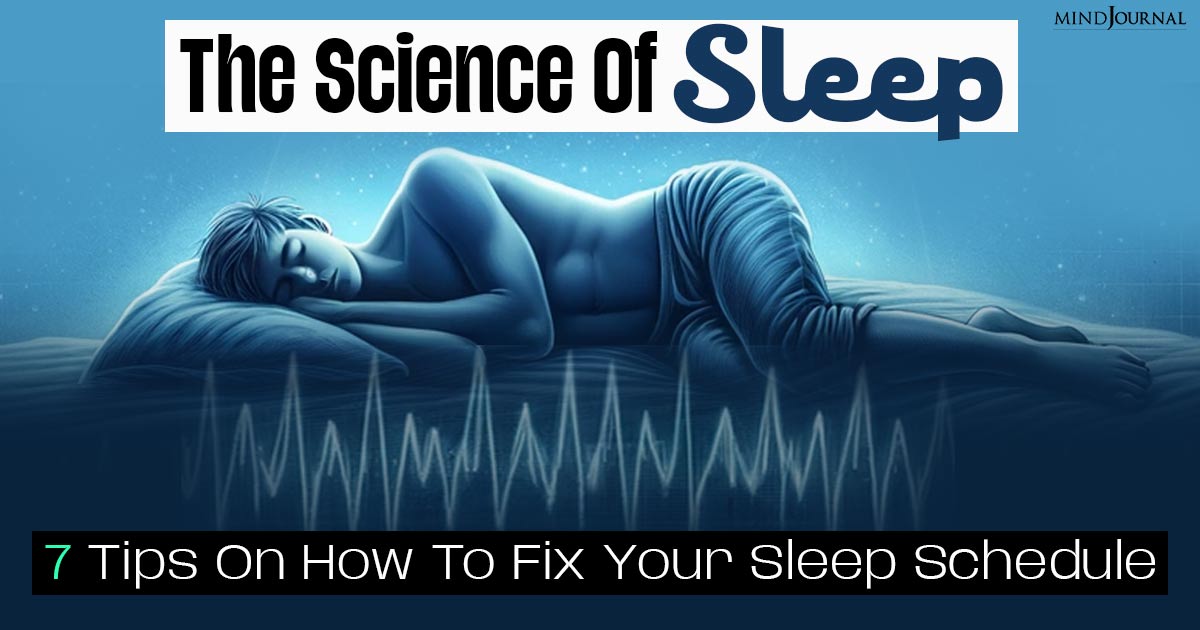Do you ever wake up feeling groggy, tired, and lacking the energy to tackle the day ahead? Many people struggle with sleep-related issues that can significantly impact their overall well-being. However, understanding the science of sleep can help you unlock the secret to better health and enhanced productivity.
Let’s explore the fascinating world of sleep, discuss the importance of sleep for productivity, and learn some practical tips on how to fix your sleep schedule. So, grab a cozy blanket, settle in, and let’s explore the science of sleep together.
The Science of Sleep: Unveiling the Mysteries of Slumber
Sleep is a complex biological process that involves intricate interactions between our brain, body, and environment. Scientists believe that sleep is “an active state of unconsciousness produced by the body where the brain is in a relative state of rest and is reactive primarily to internal stimulus.”
Although the primary purpose of sleep is yet to be understood, sleep typically functions in “a relatively predictable cyclical pattern” involving two main phases– non-rapid eye movement (NREM) sleep and rapid eye movement (REM) sleep.
Related: The Different Types Of Sleeping Positions And Their Impact On Your Health
During sleep, our brain undergoes a series of essential activities, such as memory consolidation, neural repair, and hormone regulation. These processes are crucial for maintaining optimal mental and physical health.

Importance of Sleep for Productivity: The Power of Restful Nights
Sleep plays a vital role in our daily performance, both at work and in our personal lives. Here’s why:
1. Cognitive Function
A good night’s sleep enhances cognitive abilities, including attention, concentration, problem-solving, and decision-making. It allows our brain to process information efficiently and make connections between different ideas, leading to improved creativity and productivity.
2. Emotional Well-being
According to the science of sleep, lack of sleep can wreak havoc on our emotional state, making us more irritable, anxious, and prone to mood swings. On the other hand, adequate sleep promotes emotional resilience, fostering a positive mindset and better stress management, which are crucial for productivity.
3. Physical Vitality
Sleep is not only essential for mental well-being but also for physical health. It helps regulate hormones, repair damaged tissues, and boost the immune system. When we are well-rested, we have more energy, stamina, and endurance, enabling us to perform better physically, whether it’s during exercise or daily tasks.
Research shows that “sleep disturbance has a powerful influence on the risk of infectious disease, the occurrence and progression of several major medical illnesses including cardiovascular disease and cancer, and the incidence of depression.”
Related: How To Fall Asleep In 2 Minutes: Mastering The Military Sleep Technique
How to Fix Your Sleep Schedule: 7 Tips for Better Sleep

If you’re struggling with irregular sleep patterns or finding it challenging to fall asleep and wake up at consistent times, it’s time to take action. Here are some practical tips to optimize your sleep schedule:
1. Establish a Bedtime Routine
Create a relaxing routine before bed to signal your body that it’s time to wind down. This can include activities such as reading a book, taking a warm bath, or practicing mindfulness or meditation.
Consistency is key, so try to go to bed and wake up at the same time every day, even on weekends.
2. Create a Sleep-Friendly Environment
Make your bedroom a sanctuary for sleep. Keep the room cool, dark, and quiet. Invest in a comfortable mattress, pillows, and bedding that promote restful sleep.
Consider using blackout curtains, earplugs, or a white noise machine, if external factors disrupt your sleep environment. This is how to fix your sleep schedule.
3. Limit Stimulants and Electronic Devices
Avoid consuming caffeine, nicotine, or alcohol close to bedtime, as these substances can interfere with sleep quality. Additionally, the blue light emitted by electronic devices like smartphones, tablets, and computers can disrupt our natural sleep-wake cycle.
Establish a digital curfew and avoid using these devices for at least an hour before bed.
4. Regular Exercise
As per the science of sleep, engaging in regular physical activity during the day can help promote better sleep at night. However, avoid intense workouts close to bedtime, as they can increase alertness and make it harder to fall asleep.
Aim for at least 30 minutes of moderate exercise most days of the week.
Related: Overthinking Before Sleep? 8 Ways To Avoid Racing Thoughts At Night And Sleep Better
5. Manage Stress
High levels of stress can significantly impact the quality of our sleep. Explore stress management techniques such as deep breathing exercises, journaling, or engaging in activities you enjoy. If stress persists, consider seeking professional help or counseling.
6. Avoid Napping Too Late
While a short power nap can be beneficial, napping too close to your bedtime can interfere with your ability to fall asleep at night. If you feel the need to nap, limit it to 20-30 minutes and avoid doing so after 3 pm.
7. Gradually Adjust Your Sleep Schedule
If your sleep schedule is significantly out of sync, it can be challenging to make sudden changes. Instead of trying to shift your sleep and wake times drastically, opt for a gradual adjustment.
Start by moving your bedtime and wake-up time by 15-30 minutes earlier or later, depending on your goal. Stick to this new schedule for a few days until your body adjusts before making further adjustments. Repeat this process until you reach your desired sleep schedule.
Remember, everyone’s sleep needs and preferences are unique, so it’s essential to find the strategies that work best for you.
Takeaway
Sleep is a fundamental pillar of our overall well-being, and understanding the science of sleep can empower us to optimize our sleep patterns for better health and productivity.
By fixing our sleep schedule, we can unlock the transformative power of a good night’s rest. So, let’s embrace the science of sleep and embark on a journey towards improved health, enhanced productivity, and a life filled with vitality and well-being.
Sleep tight!
Related: Health Benefits Of Darkness: 4 Reasons Why You Should Sleep In The Dark, Not With The Lights On
Frequently Asked Questions (FAQs):
What is the science of sleep called?
The science of sleep is called sleep science or somnology, encompassing the study of sleep patterns and behaviors.
What is the science behind going to sleep?
The science behind going to sleep involves understanding circadian rhythms, sleep stages, and the role of neurotransmitters.
What is the scientific way of sleeping?
The scientific way of sleeping involves optimizing sleep hygiene, creating a conducive sleep environment, and maintaining a consistent sleep schedule.










Leave a Reply